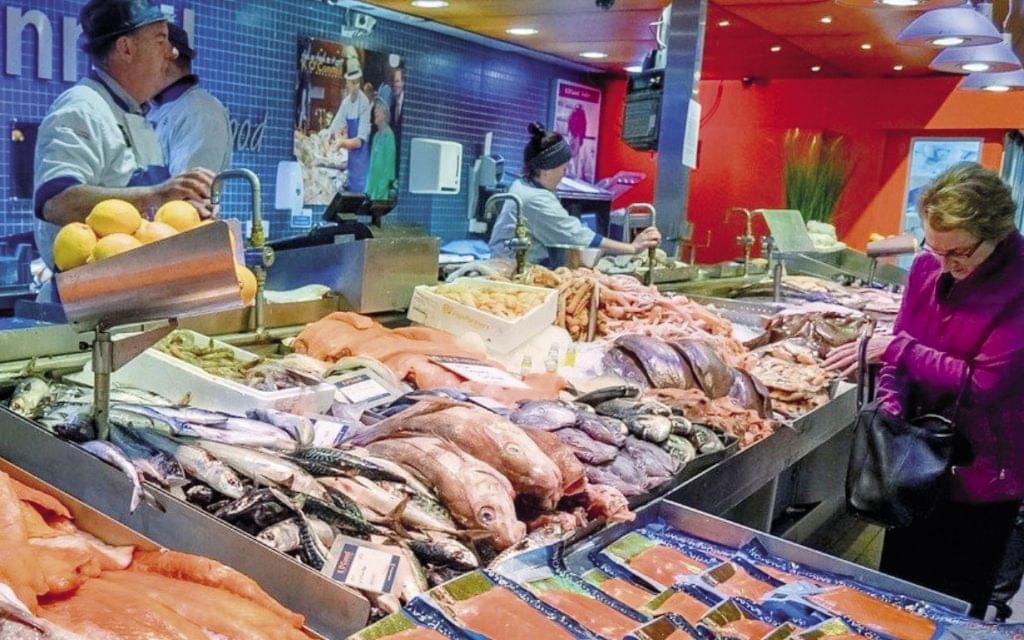10 from 10 cardiologists recommend it!
Hungarian fish consumption is strengthening, first and foremost because of the current health trend.

Thanks to the uninterrupted supply, fish eating isn’t seasonal anymore in Hungary. Still, there is some kind of seasonality with certain fish varieties, in periods such as the barbecue season, summer holiday, Christmas, etc. The majority of fish is still consumed by holidaymakers by rivers and lakes, and at Christmas.
Let’s start to like it!

János Koncz
fresh and frozen
fish sales and category expert
METRO
Eating fish is more and more popular in restaurants, and restaurant owners also like fish dishes, as they can be prepared faster and from less energy than meat, which also means that these dishes end up on the tables of guests faster.
János Koncz, fresh and frozen fish sales and category expert of METRO told our magazine: they put their fish offering into three big categories – fresh, frozen and convenience. There are nearly 110 different fresh fish products in the assortment, but frozen fish has the biggest selection; in the convenience group we find sushis, caviars, etc.

Imre Máté
founder-owner
FrissHal
Imre Máté, founder and owner of FrissHal spoke to us about the growing per capita fish consumption. He is of the opinion that fish is still a seasonal product in Hungary. In his view even the cheapest fish is more expensive than meat. Salmon is still trendy, hake is popular and African catfish is favoured by many consumers, too.
For amateurs and professionals
János Koncz informed that there is great demand for METRO’s fresh and ultra-fresh fishes among those gourmet consumers who like to cook at home. Pizza and pasta restaurants are the biggest buyers of fruits of the sea. METRO sells ready-made sushi too, but those who would like to prepare it themselves can buy all the ingredients in METRO stores. Mr Koncz explained that it is difficult to measure the impact of campaigns promoting fish consumption, because their objective is to change eating habits in the medium and long term. //
In good hands
At the end of September the products of fish processing firm FrissHal appeared in the Matusz-Vad portfolio, as Balázs Matusz acquired a majority share in the Balatonlelle-based company. Matusz-Vad can now supply its more than 8,000 partners with fresh fish too. FrissHal’s production facility will be modernised and the number of employees will double. //
Fish from Lake Balaton as a brand
Recently Minister of Agriculture Dr István Nagy called it a milestone in Hungarian fish production that products with the “Balaton Fish” designation are now protected by the European Union. The minister said: in spite of the initial criticism as regards the ban on fishing in the country’s natural waters a few years ago, this has proved to be a good decision. Only carp and zander from Lake Balaton or its catchment area are eligible for benefitting from the EU protection. //
Related news
(HU) METRO Gasztro Fesztivál a SIRHA Budapesten – Élmény, inspiráció és valódi megoldások a HoReCa-szakmának
🎧 Hallgasd a cikket: Lejátszás Szünet Folytatás Leállítás Nyelv: Auto…
Read more >Metro recalls peanuts
🎧 Hallgasd a cikket: Lejátszás Szünet Folytatás Leállítás Nyelv: Auto…
Read more >Close to consumers
🎧 Hallgasd a cikket: Lejátszás Szünet Folytatás Leállítás Nyelv: Auto…
Read more >Related news
Szallas.hu: Budapest, Hajdúszoboszló and Eger are the favorites of domestic travelers in spring
🎧 Hallgasd a cikket: Lejátszás Szünet Folytatás Leállítás Nyelv: Auto…
Read more >Hello, who ordered the hamburger?
🎧 Hallgasd a cikket: Lejátszás Szünet Folytatás Leállítás Nyelv: Auto…
Read more >(HU) Faragta, faragta, amíg faraghatta… – A nap képe
🎧 Hallgasd a cikket: Lejátszás Szünet Folytatás Leállítás Nyelv: Auto…
Read more >








